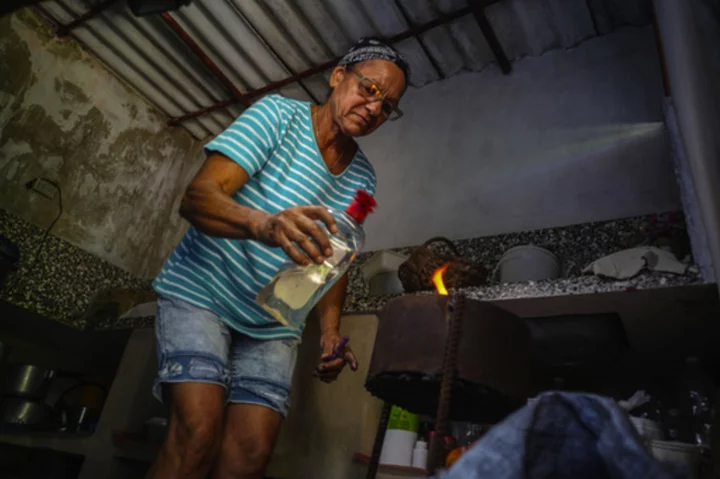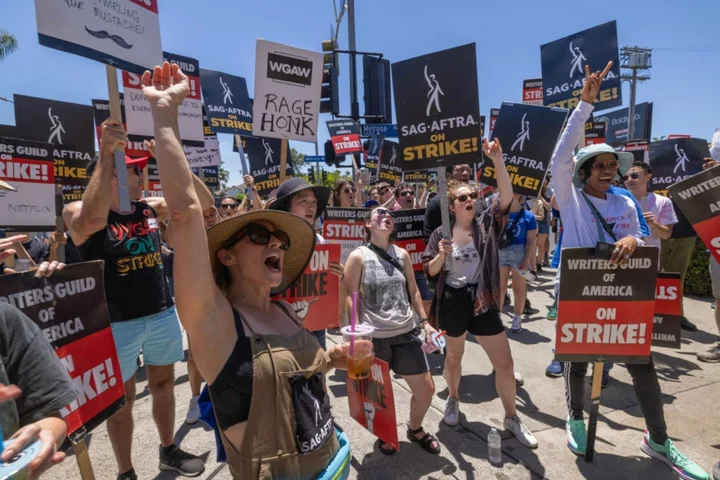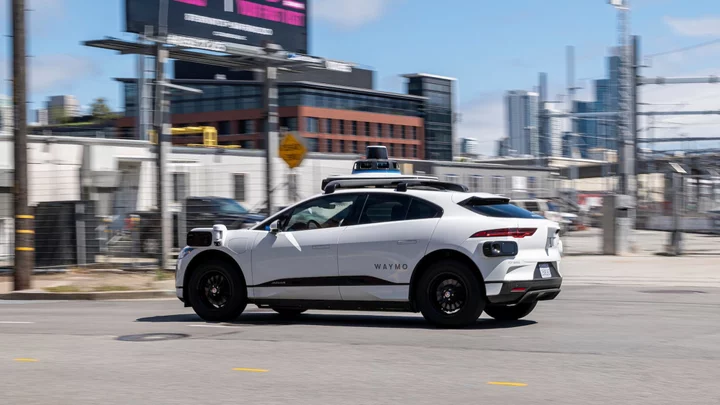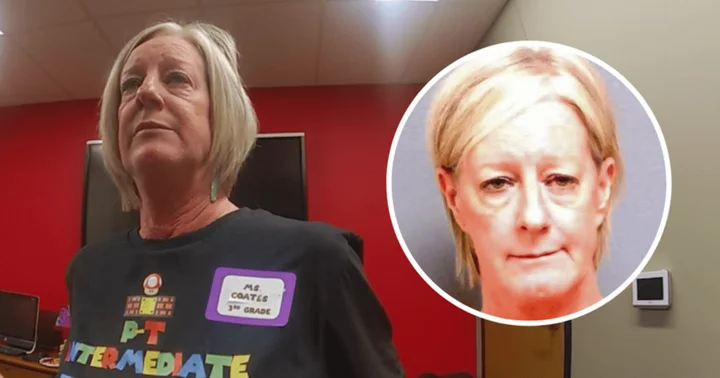MARIEL, Cuba (AP) — Rosa López, a 59-year-old housewife, lit a charcoal stove to boil sweet potatoes and prepare scrambled eggs for her grandchildren. The gas cylinders she normally uses to cook her meals have not been available for almost two months in Mariel, a port town west of Havana.
Not far from there, on the highway to Pinar del Río and under a scorching sun, Ramón Victores spent one week waiting in line at a gas station, hoping to fuel up the 1952 red Chevrolet he uses for work, moving produce from one town to another.
Cuba’s most recent fuel shortage has crippled an already fragile economy, but it is hitting rural villages particularly hard, with residents resorting to coal fires to cook their food, scrambling to find transport to take them to work and spending days — and nights — at the gas station waiting to fuel up.
The Associated Press visited a dozen villages in the provinces of Artemisa and Mayabeque, to the east and west of Havana, to talk to people about how the fuel shortage is affecting their daily lives and what they're doing to dodge yet another crisis.
With food and medications already in short supply amid an economy that was severely hurt by the COVID-19 pandemic, the end of the country's two-currency system and a tightening of U.S. sanctions, the lack of fuel and cooking gas is perceived by many Cubans in the island's countryside as the last straw.
López, the housewife in Mariel, has been using coal and firewood to cook her meals since the government suspended the sale of gas cylinders over a month ago. A system of coupons in place now organizes the delivery of precious cooking gas, but López is number 900 in line and not sure when she'll be able to get her hands on one.
About 50 kilometers (30 miles) east of Mariel, on the road to Pinar del Río, a group of small vehicles joined a long queue of tractors and other farming equipment at a gas station waiting for their turn to fill up, with many waiting for up to one week.
Manuel Rodríguez, a 67-year-old gardener, waited four days in line, hoping to fuel his battered motorcycle. But instead of settling for the mere three liters needed to fill it up, he came up with an ingenious way to take advantage of the 10-liter maximum allowed per user: He strapped a 10-liter plastic tank to the frame of his blue motorcycle, acknowledging the contraption might not precisely be the safest way to travel.
“It's a bit dangerous," he said while showing off his invention. “But it works!”
The lack of fuel is also making it harder for residents of small villages to go to work and move around neighboring towns. María de la Caridad Cordero, a 58-year-old teacher in Güines, in the province of Mayabeque, waited for a ride to Jagüey Grande to visit her brother.
“If I don’t find anything by noon, I’ll just go back home and try again tomorrow, or the day after tomorrow,” she said.
Ultimately, after two hours standing by the road, waving money unsuccessfully trying to entice the sporadic drivers to pick her up, she and a dozen other villagers hopped on a yellow school bus that suddenly came to a screeching halt.
Back in Mariel, López and her family said they found temporary relief in a small plot of land where they built a coal stove and grow some fruits and vegetables. Yet, there are basic food items that are still hard to come by.
“There's no cooking oil at the bodega,” she says. “Hopefully, we’ll get some tomorrow.”









